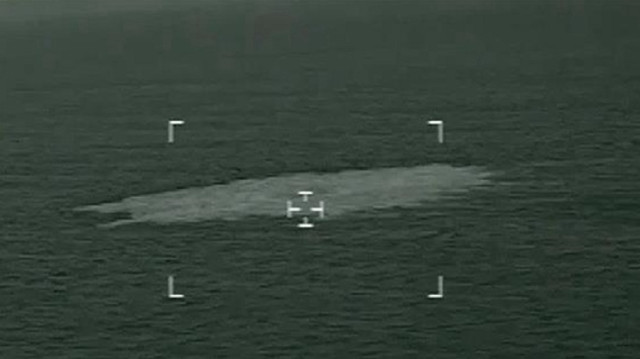UK-led reaction system activated to track threats to undersea infrastructure, monitor Russian shadow fleet | Europe

The Joint Expeditionary Force (JEF) has launched a UK-led advanced reaction system named Nordic Warden to monitor threats to undersea infrastructure and track the Russian shadow fleet, following reported damage to the Estlink2 undersea cable in the Baltic Sea.
The operation, activated last week, harnesses AI to assess data from a range of sources, including the Automatic Identification System (AIS) ships use to broadcast their position, to calculate the risk posed by each vessel entering areas of interest, according to a statement released by the force on Monday.
Specific vessels identified as being part of Russia’s shadow fleet have been registered into the system so they can be closely monitored when approaching key areas of interest, the statement said.
UK’s Prime Minister Keir Starmer, in the statement, emphasized the initiative’s importance, stating: “Growth and national security are vital to our Plan for Change, which is why this government is working closely with our allies to protect critical national infrastructure, such as undersea cables. I am pleased we are launching this cutting-edge technology so soon after the JEF Summit to enhance European security and deliver on our Plan for Change.”
Harnessing AI and other data sources, the Nordic Warden system assesses risks posed by vessels entering 22 key areas of interest, including parts of the English Channel, North Sea, Kattegat, and Baltic Sea.
Defence Secretary John Healey highlighted the system’s innovation, saying: “Nordic Warden will help protect against both deliberate acts of sabotage as well as cases of extreme negligence which we have seen cause damage to underwater cables.”
The damage to the Estlink2 cable on Christmas Day, reportedly caused by a tanker linked to Russia’s shadow fleet, has raised alarms about maritime risks.
The JEF’s joint statement on the incident read: “This is another example of maritime incidents causing direct economic and security implications for Finland and Estonia, highlighting the risks to vital communication and energy networks essential for the security and prosperity of all our nations.”
The Nordic Warden system, first trialed during the JEF’s Exercise Joint Protector in 2024, monitors suspicious vessels in real-time, sharing alerts with JEF nations and NATO allies.
“We remain committed to supporting Participant Nations, NATO, and Allies in safeguarding our shared interests and regional stability,” the JEF said in the statement.
The JEF, comprising 10 nations—Denmark, Estonia, Finland, Iceland, Latvia, Lithuania, Norway, Netherlands, Sweden, and the UK as the framework nation—reiterated its commitment to securing critical infrastructure and countering threats in shared maritime regions.
Related
Major military infrastructure upgrade completed at Leuchars
Upgraded facilities have been delivered for The Royal Scots Dragoon Guards and 2nd Battalion Royal Electrical and Mechanical Engineers, including refurbished o
UK public EV charge points surpass 75,000 as infrastructure booms
The UK’s electric vehicle (EV) charging infrastructure has hit a significant milestone, with the number of public charge points surpassing 75,000. According t
Infrastructure firm strengthens UK presence with Brierley Hill warehouse |…
National infrastructure service provider MJ Quinn has secured a newly refurbished industrial site in Brierley Hill as part of its ongoing UK ex
UK: Work Begins on New Railway Station in Okehampton
Initial work has begun to build a new railway station in Okehampton, Devon. The new 15 million GBP station, named Okehampton Interchange, will connect We













